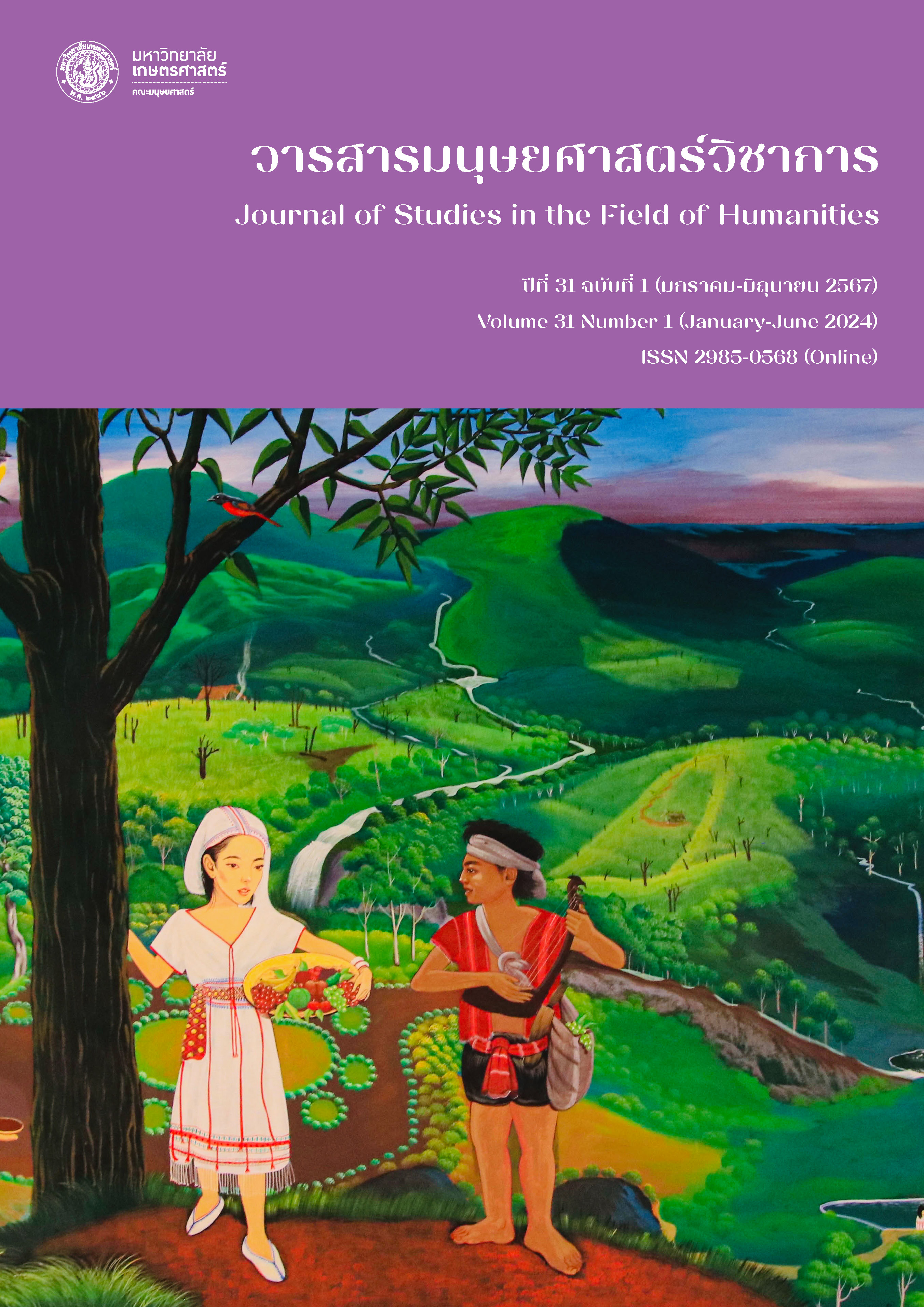The Need of Innovation and Communication Model of Innovation-Decision Process of Older People in Digital Citizenship Skill Improvement in Information Technology (IT) Security
Main Article Content
Abstract
The objectives of the study are 1) to study online media behavior of older adults, 2) to study their needs of innovation for digital citizenship skill improvement in Information Technology (IT) security, and 3) to develop communication model of Innovation-decision process of older adults in digital citizenship skill improvement in Information Technology (IT) security. The data were collected by focus group discussion with 8 samples of older adults continuously using online media and in-depth interviews with 12 bedridden older adults with the same condition from 6 regions. The collected data were used as a guideline to develop communication model of innovation-decision process of older adults in digital citizenship skill improvement in IT security. The developed communication model of innovation-decision process was later evaluated by 5 experts.
The result shows that Line application is the most used social media among the target samples under the purpose of family and friend connection, information exchange and research for healthcare, medical treatment, and news checking. Their need of innovation for digital citizenship skill improvement is for ICT capacity building and making the most use of it. The communication model of innovation-decision process proposes personalized communication, interacting with chatbot in Line application, plus direct communication with human to persuade older adults in realizing the advantages of IT and confirm it for lifelong learning. According to the evaluation result, the experts highly agreed with this communication model of innovation-decision process. It can be applied as the guidelines of innovation development for the digital citizenship skill improvement as well as help in promoting digital citizenship skills in IT security among the older adults.
Article Details

This work is licensed under a Creative Commons Attribution-NonCommercial-NoDerivatives 4.0 International License.
References
ณัฐกานต์ บุญรอด, และทิพยา จินตโกวิท. (2558). แนวทางในการออกแบบการสร้างเนื้อหาบนเว็บไซต์สำหรับผู้สูงอายุ. The 11th National Conference on Computing and Information Technology (NCCIT2015), 481-486.
สุวิช ถิระโคตร, และวีรพงษ์ พลนิกรกิจ. (2561). พฤติกรรมการใช้และการรู้เท่าทันอินเทอร์เน็ตและทัศนคติการใช้เนื้อหาด้านสุขภาวะบนอินเทอร์เน็ตของผู้สูงอายุ. วารสารการพยาบาลและการดูแลสุขภาพ, 36(1), 72-80.
อารีย์ มยังพงษ์, และเกื้อกูล ตาเย็น. (2559). ปัจจัยที่ส่งผลต่อความต้องการการเรียนรู้เทคโนโลยีของผู้สูงอายุในยุคหลอมรวมเทคโนโลยี. กรุงเทพฯ: คณะบริหารธุรกิจ มหาวิทยาลัยเทคโนโลยีราชมงคลพระนคร.
อุษา บิ้กกิ้นส์, และชวพร ธรรมนิตยกุล. (2561). นวัตกรรมสื่อเพื่อสร้างความเป็นพลเมืองดิจิทัลผ่านมัลติแพลทฟอร์ม. กรุงเทพฯ: กองทุนพัฒนาสื่อปลอดภัยและสร้างสรรค์.
Blackwood-Brown, C., Levy, Y., & D'Arcy, J. (2019). Cybersecurity awareness and skills of senior citizens: A motivation perspective. Journal of Computer Information Systems, 61, 1-12.
Dhamanitayakul, C. (2017). Conceptualization digital citizenship for digital natives in Thailand. Bangkok: National Institute of Development Administration.
Osgood, C. E., & Schramm, W. (1954). The process and effects of mass communication. Urbana: University of Illinois Press.
Przegalinska, A., Ciechanowski, L., Stróż, A., Gloor, P., & Mazurek, G. (2019). In bot we trust: A new methodology of chatbot performance measures. Business Horizons, 62, 785-797.
Rogers, E. M. (2003). Diffusion of innovations (5th ed.). New York: Free.
Sayago, S., Forbes, P., & Blat, J. (2012). Older people becoming successful ICT learners over time: Challenges and strategies through an ethnographical lens. Educational Gerontology, 38, 6.
Tascini, G. (2019). AI-Chatbot using deep learning to assist the elderly. In Minati, G., Abram, M., & Pessa, E. (Eds.), Systemics of incompleteness and quasi-systems (pp. 303-315). New York: Springer.
Toshinari, I., Shoma, A., Masatomo, K., & Hironobu, T. (2014). Involving senior workers in crowdsourced proofreading. In Proceedings of the 8th international conference on universal access in human-computer interaction: aging and assistive environments volume 8515 (pp. 106-117). Berlin: Springer.


